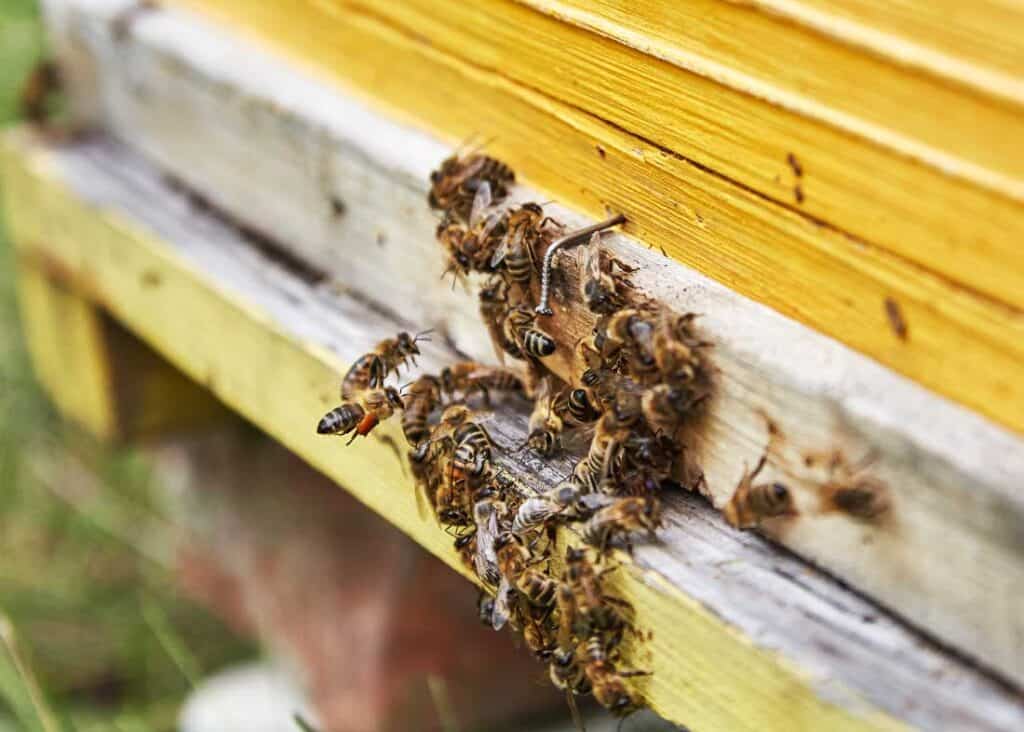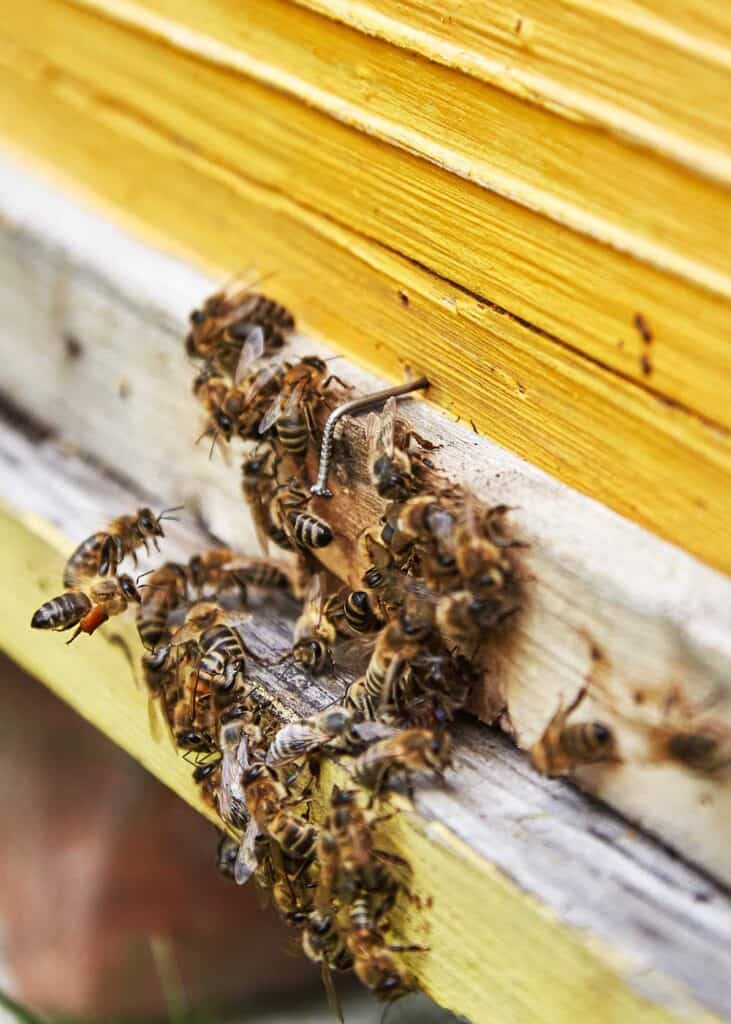Building a bat house is a fun way to create a safe habitat for the bats in your area. Do bats eat bees? According to beekeepers, bats usually do not eat bees because they are nocturnal while bees are diurnal and come out during the day. There are some circumstances in which bats will eat bees though.

Table of Contents
Do Bats Eat Bees?
Rather than state the hypthetical, let’s hear from actual beekeepers.
Are beekeepers concerned with bats eating their honeybees?
From the Mouths of Beekeepers
Here are some quotes from a couple of large beekeeping forums and communities.
- “I have bats and bees. Their paths don’t cross. Everything is fine in their little worlds.” – Cheryl, Bee Master
- “Bats are nocturnal and are out feeding while the bees are snug in the hive.” – Athiker, Bee Source
- “I have never seen the bats out while be bees were still out so there is no problem with that.” – Achunter, Bee Master
- “I’ve had bats everywhere I’ve lived and never had a problem. The bees aren’t out at night and the bats aren’t out in the day.” – Michael Bush, Bee Source
And these beekeepers aren’t alone.
The general consensus among beekeepers in both communities is the same. Bats don’t eat bees – at least enough to have any negative impact on their population.
More reading: Are bugs and insects the same?
Do Bats Eat Bees? What You Need to Know
Though some people find bats scary, they do a lot of good in the world.
A single bat can eat around 10,000 insects a night and wipe out mosquitos and other insects that wreak havoc on your home and lawn.
Roughly 70% of their diets come from the bugs they eat.
The actual volume of insects that a single bat can eat in one night is unverified. Here is a great post that reasons on the data.
Why Don’t Bats Eat Bees?
The biggest reason why they don’t eat bees is that bats hunt at night and bees work during the day. As they rely on two different schedules, they rarely come across each other.
That does not mean bats will never eat bees though.
Carpenter bees lack the stripes that other bees have and are solitary rather than social insects. They often become prey for bats because they are easy to eat and look similar to other bugs that bats love.
Honey bees are occasionally food for bats as well. Unlike other bees that do not come out at night, honey bees will come out if they have work to do and there is a full moon that provides them with enough light.
Bats use echolocation to hone in on their prey. It will then hold the insect down with its tail and rotate its wings to grasp the bug and pull it into its mouth.
If you see a bat suspended in the air and moving in an odd way, you likely spotted a bat feeding. Bats often eat pollen and nectar, which makes them similar to bees.
As bees do, bats will pollinate a region and help plants grow. In the southwest, bats often eat cacti and agave plants and use pollination to keep the cacti thriving.
- You might need to worry about bats eating bees if you see bats coming out in the middle of the day. This is rare and often only occurs when something scares them away from their homes.
- You may also worry about bats eating bees if there are carpenter bees around your home or honey bees that are out at night. If you decide to build a bat house in your backyard, you don’t need to worry about bats killing your beehives.
Here’s more about what bats eat, according to the USGS.
More reading: Bee vs Wasp vs Hornet (Identification Guide)

More reading: Do Wasps Make Honey? Do Hornets and Bumble Bees Make Honey?
Bats are Predators
Though bats are natural predators that eat certain insects, they rarely eat bees. Most bees work during the day and avoid coming out at night, while bats hunt and work at night but do not come out during the day. As the two creatures are so different, you do not need to worry about them affecting each other. Bees and bats can usually live in harmony.
- About the Author
- Latest Posts
Bryan Haines is a co-founder and writer at The Buginator. And is working to make it the best resource for taking back the outdoors from biting, stinging pests.
He also blogs about travel at Storyteller.Travel and photography at Storyteller Tech. Bryan is a partner at Storyteller Media, a publishing company he runs with his wife, Dena.
